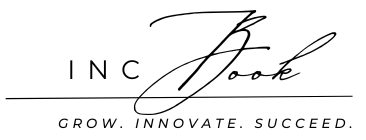Advancements in Personalized Skincare: The Future of Beauty and Wellness
- Skin Age Calculator: L’Oréal’s new tool uses “lab-on-a-chip” technology to assess skin aging and predict reactions to ingredients like retinol.
- Personalized Solutions: Custom skincare is tailored to individual needs, addressing concerns such as wrinkles, dryness, and pigmentation.
- Technology-Driven Innovation: AI, 3D skin printing, and genetic testing are enabling personalized, data-driven skincare products.
- Market Demand: Personalized skincare is part of the broader wellness trend, focusing on targeted treatments for better outcomes.
- Future Outlook: Advancements in AI and big data will continue to revolutionize skincare, making it more effective, sustainable, and accessible.
The beauty and skincare industry is rapidly evolving, with new technologies allowing for more personalized and targeted treatments. One of the most exciting innovations in this space is the development of tools and technologies that enable consumers to receive skincare recommendations and treatments tailored to their unique skin profiles. A key player in this new frontier is L’Oréal, which has recently introduced a groundbreaking skin age calculator designed to assess how individual skin reacts to various ingredients.
L’Oréal’s Skin Age Calculator: A Game-Changer
L’Oréal’s new Cell Bioprint tool, developed in collaboration with Korean biotech company Nanoentek, takes personalization to the next level. This tool uses “lab-on-a-chip” technology to analyze skin at the cellular level. By taking a small sample of the skin, the tool can predict skin aging, assess how it responds to ingredients like retinol, and offer insights into the best treatments for individual users.
The device works by using bioprinting technology to simulate the skin’s reaction to various ingredients. This approach allows for a more accurate understanding of how certain compounds can improve the health and appearance of skin, particularly as it relates to aging. With this technology, skincare becomes less of a one-size-fits-all approach and more about customizing solutions based on an individual’s unique skin composition.
Why Personalized Skincare Matters
The demand for personalized skincare has been growing in recent years, driven by an increasing understanding that no two skin types are alike. People have varying needs when it comes to skincare, and a generic product may not always address those needs effectively. Personalized skincare solutions allow for a deeper level of customization, ensuring that treatments and products are specifically designed to target an individual’s skin concerns, such as wrinkles, pigmentation, dryness, or sensitivity.
This growing interest in personalized skincare reflects a broader trend in the wellness industry, where consumers are seeking tailored solutions not just for skincare, but for overall health. With personalized products, individuals can target specific concerns, leading to better outcomes and more effective skincare routines.
The Role of Technology in Skincare Innovation
The rise of technology in the beauty and skincare industry is making these innovations possible. In addition to tools like L’Oréal’s skin age calculator, we are seeing other technological advancements that enable consumers to better understand and care for their skin. These include AI-powered apps, which can analyze skin condition through photos, and smart skincare devices that adapt treatments based on the skin’s condition in real-time.
The increasing availability of personalized skincare products is also being driven by advancements in 3D skin printing and genetic testing. Companies are exploring the use of biometrics and genomics to create customized skincare products tailored to a person’s unique genetic makeup and environmental factors. This kind of technology could revolutionize the way skincare products are developed and used in the future.
The Future of Personalized Skincare
As skincare technology continues to advance, the market is expected to shift towards even more personalized, data-driven solutions. Consumers can expect a future where their skincare routine is not just informed by their age or skin type but by a range of biological, environmental, and lifestyle factors. With the increasing integration of artificial intelligence, big data, and machine learning, skincare companies are well-positioned to deliver products that not only enhance beauty but also improve overall skin health.
Furthermore, personalized skincare solutions could lead to more sustainable practices in the beauty industry. By offering tailored treatments, companies can reduce waste and excess product usage, which has long been a concern in the beauty industry. Consumers will no longer have to experiment with multiple products to find what works for them, reducing the environmental impact of unnecessary packaging and product disposal.
Challenges and Considerations
While the advancements in personalized skincare are exciting, there are still challenges to be addressed. One key issue is the cost—highly customized skincare products and technologies can be expensive, limiting access for some consumers. Additionally, as the industry continues to grow, the use of consumer data in creating personalized skincare solutions raises questions about privacy and data security. Companies will need to ensure that consumers’ personal information is handled with care and transparency.
